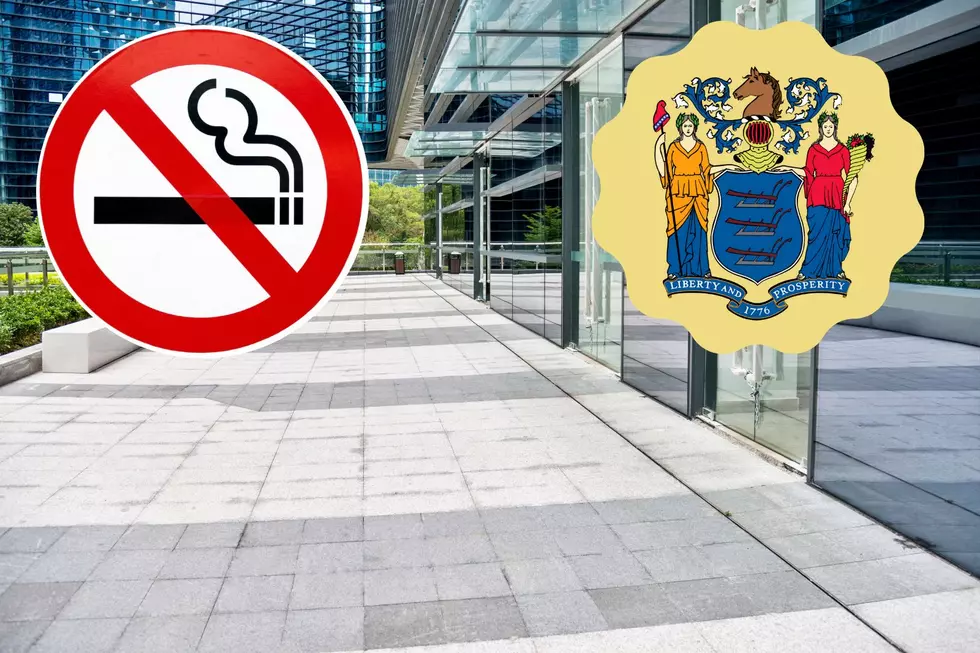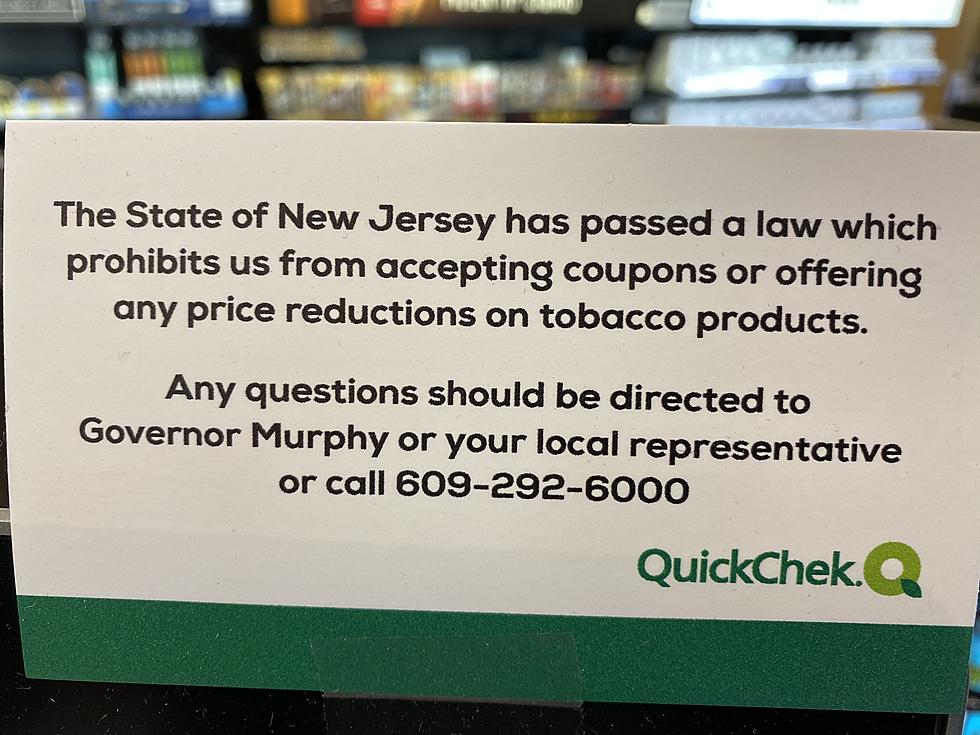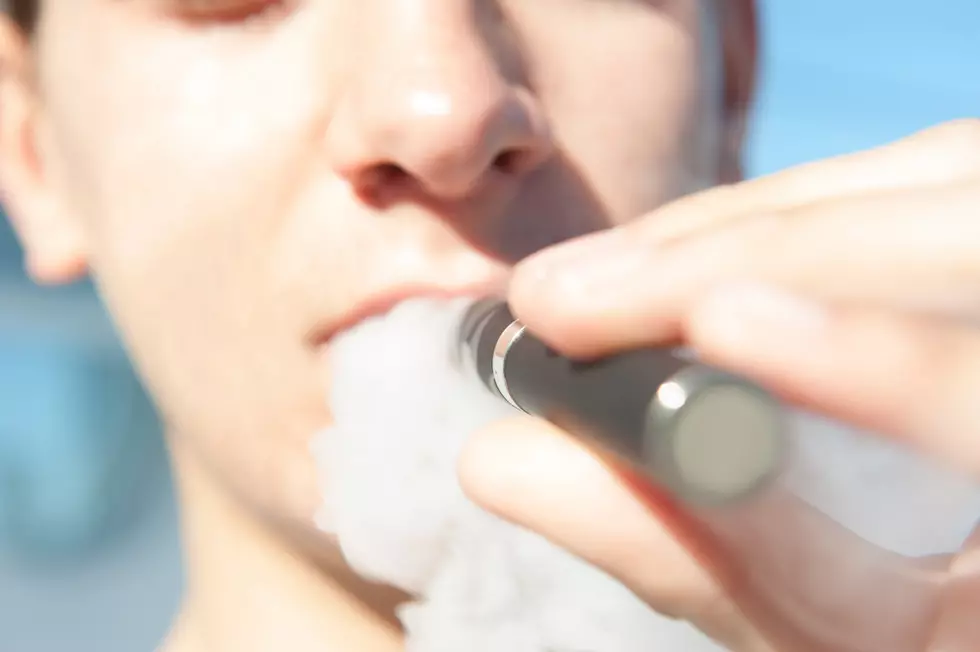![NJ Spends Least in US on Tobacco Prevention [AUDIO]](http://townsquare.media/site/385/files/2012/11/Cigarette.jpg?w=980&q=75)
NJ Spends Least in US on Tobacco Prevention [AUDIO]
Fifteen years after the United States reached a $246 billion settlement with the tobacco industry, a report finds most states have broken their promises to significantly fund smoking prevention and cessation programs -- and New Jersey ranks dead last in spending.
The report, entitled Broken Promises to Our Children: The 1998 State Tobacco Settlement 15 Years Later, was released by the Campaign for Tobacco-Free Kids, American Heart Association, American Cancer Society Cancer Action Network, American Lung Association, Robert Wood Johnson Foundation and Americans for Nonsmokers' Rights.
Tobacco use is the number-one cause of preventable death in the United States, according to the report, killing more than 400,000 Americans and costing the nation $96 billion in health care bills each year. Meanwhile, tobacco companies spend more than $18 to market tobacco products for every $1 the states spend to reduce tobacco use. The latest data from the Federal Trade Commission found that tobacco companies spend $8.8 billion a year, or $1 million an hour, to market cigarettes and smokeless tobacco.
"States are doing a dismal job funding tobacco prevention," said Danny McGoldrick, vice president of research at the Campaign for Tobacco-Free Kids. "Eleven thousand New Jerseyans die each year from tobacco-related disease, we spend $3 billion treating tobacco-caused disease, and 6,600 children try their first cigarette every year.
We know the problem, we know the solution and we have the money, we're just not exercising the political will to do it," said McGoldrick. "When we fund these programs, smoking declines among both youth and adults and when we defund them, we lose that progress."
Among the report's key findings:
- Over the past 15 years, the states have received $390.8 billion in tobacco-generated revenue -- $116.3 billion from the tobacco settlement and $274.5 billion from tobacco taxes. But they have spent only 2.3 percent of their tobacco money, $8.9 billion, on tobacco prevention programs.
- This year (fiscal year 2014), the states will collect $25 billion in tobacco revenues, but will spend only 1.9 percent of it -- $481.2 million -- on tobacco prevention programs. While this year's funding is a slight increase from a year ago, it fails to restore deep cuts that have reduced tobacco prevention funding by a third since 2008.
- The states currently provide just 13 percent of the tobacco prevention funding recommended by the Centers for Disease Control and Prevention. Only two states, North Dakota and Alaska, are funding tobacco prevention programs at the CDC-recommended level. Only four other states -- Delaware, Wyoming, Hawaii and Oklahoma -- provide even half the recommended funding.
Tobacco-related health care costs total $96 billion a year in the United States. Studies show states can save $5 in tobacco-related medical costs for every $1 spent on tobacco prevention and cessation programs. In fact, in Florida, where there is a well-funded, sustained program, the high school smoking rate fell to just 8.6 percent in 2013. That's far below the national average.
"It is public health malpractice that the states are spending so little on tobacco prevention programs, despite having so much evidence that these programs work to save lives and save money," said Matthew Myers, president of the Campaign for Tobacco-Free Kids. "To win the fight against tobacco, elected officials at all levels must step up efforts to implement proven solutions, including well-funded tobacco prevention programs."
"It's inexcusable that states are spending less than two cents of every dollar they receive in settlement funds and tobacco taxes on cessation programs that are proven to help people quit, and ultimately better the health of its residents," said Dr. John Seffrin, chief executive officer of the American Cancer Society Cancer Action Network. "Evidence shows what works in tobacco control is comprehensive smoke-free laws, significant, consistent increases in tobacco taxes and fully-funded tobacco prevention and cessation programs."
For a compete copy of the report, visit tobaccofreekids.org.
More From New Jersey 101.5 FM









